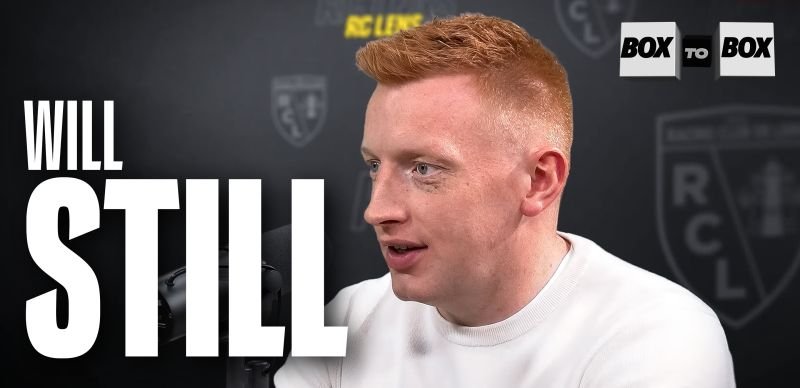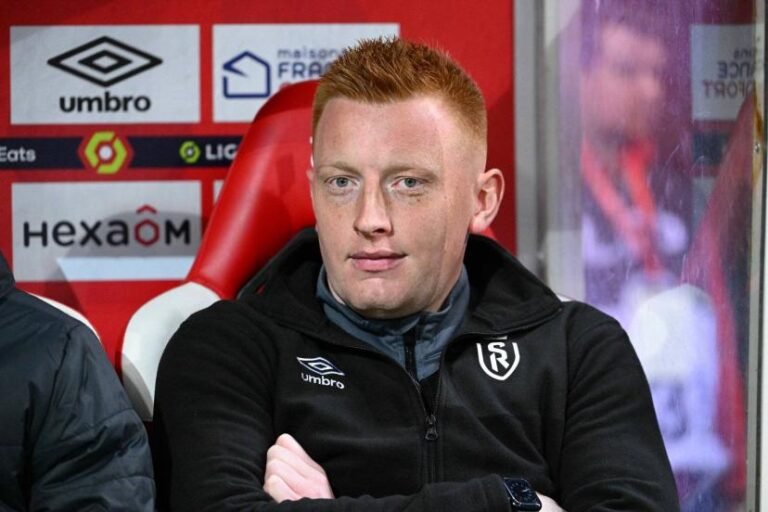A New Face in the Dugout
Football has long been dominated by seasoned managers with years of experience, traditional training, and a lifetime in the game. But every so often, someone breaks the mold. Enter Will Still, the Belgian-English coach who, at just 30 years old, has defied expectations and rewritten what it means to be a football manager in the modern era. Known for his unconventional rise to fame, data-driven methods, and a deep tactical mind, Still has become one of the most talked-about figures in European football. His journey from a Football Manager enthusiast to the touchlines of Ligue 1 is not just remarkable—it’s inspirational.
Who Is Will Still?
Early Life and Background
Will Still was born on October 14, 1992, in Belgium to English parents. His multicultural upbringing gave him a unique perspective on football, blending the disciplined tactical rigor of continental Europe with the passion and flair of English football. Raised in a bilingual household, Still was exposed to different footballing ideologies early on. His two brothers, Nicolas and Edward, also pursued careers in coaching and analysis, making the Still household a breeding ground for tactical minds.
Though he dabbled in football at the amateur level, it was clear from a young age that his passion lay more in coaching than playing. Unlike many of his peers, Still did not climb the managerial ranks after a storied playing career. Instead, he took a route less traveled, marked by video analysis, strategy boards, and even video games.
The Football Manager Connection
Perhaps the most extraordinary element of Will Still’s story is his well-documented connection to the video game Football Manager. Like many fans of the sport, Still spent countless hours simulating careers, building squads, and analyzing match outcomes. But unlike most, he translated this virtual passion into a real-world career. He has often credited Football Manager with shaping his understanding of tactics, player management, and squad development.
In fact, this unorthodox training played a pivotal role in his early appointments as a video analyst at clubs like Preston North End and later, Belgian sides such as Sint-Truiden and Standard Liège. While his contemporaries studied coaching badges, Still studied formations on a screen—and it worked.
Will Still’s Rise in Management
Early Coaching Roles in Belgium
Still’s coaching career officially began when he joined Sint-Truiden in 2014 as a video analyst. His keen eye for tactical nuance quickly earned him a reputation within Belgian football. He moved on to other clubs such as Lierse SK and Standard Liège, initially working in behind-the-scenes roles. However, his leadership qualities and tactical intelligence did not go unnoticed.
At just 24 years old, he was appointed caretaker manager of Lierse, making him the youngest manager in Belgian professional football history at the time. Under his guidance, Lierse went on a winning run that stunned pundits and fans alike. Though still unlicensed as a head coach, he showed a natural command of the dressing room, an analytical mind for the game, and an unshakable confidence that defied his age.
Breaking Into Ligue 1 with Stade de Reims
Still’s big break came with French side Stade de Reims. Initially joining as an assistant manager, he was thrust into the spotlight when the club decided to part ways with head coach Óscar García. In October 2022, at just 30 years old, Still became the head coach of the Ligue 1 team.
What followed was nothing short of sensational. Reims went on a 19-game unbeaten run under his leadership, including matches against heavyweights like Paris Saint-Germain and Olympique Lyonnais. Media outlets across Europe began covering his story, marveling at the fact that he was managing at the highest level without a UEFA Pro License—a requirement in most top leagues.
Tactical Philosophy and Management Style

Data-Driven and Analytical
Will Still is part of a new breed of managers who prioritize data analytics, video analysis, and evidence-based decision-making. He often relies on performance metrics, GPS tracking data, and heat maps to fine-tune player roles and strategies. His approach to preparation and game analysis is clinical, leaving little to chance.
Still has often spoken about the importance of “controlling the controllables”—managing variables such as player workload, positioning, and opponent tendencies. This philosophy has helped him build resilient, disciplined teams that punch above their weight.
Pragmatic but Progressive Tactics
Tactically, Still is a pragmatist. He adapts formations based on opponents but prefers a high-pressing, possession-based style when possible. His teams are structured but flexible, often switching between a 4-2-3-1 and a 3-5-2 depending on the match context. Despite lacking star-studded squads, he instills tactical discipline that allows underdog teams to compete with the elite.
He’s also known for empowering young players and emphasizing team cohesion over individual brilliance. This democratic approach fosters trust and respect in the dressing room, making him a player’s manager in the truest sense.
Challenges and Controversies
Coaching Without a License
Perhaps the most controversial aspect of Will Still’s rise has been his lack of a UEFA Pro License during his early months at Stade de Reims. The club was reportedly fined €25,000 per match that Still managed without the required certification. This sparked debates about the formal requirements for coaching and whether someone with real-world results should be held back by bureaucracy.
Eventually, Still enrolled in the necessary licensing courses, but the saga exposed a broader issue in modern football: is the coaching system outdated? Can practical experience and modern tools rival traditional education? Still’s story argues yes.
Media Scrutiny and Pressure
With fame comes scrutiny. Still’s meteoric rise has attracted both admiration and skepticism. Critics have questioned whether his success can be sustained or if he’s merely a novelty figure—a lucky outlier in a data-driven era. However, his results speak volumes. Managing egos, navigating a competitive league, and implementing tactical consistency are not feats achievable by luck alone.
Impact on Modern Football
Changing the Perception of Football Management
Will Still’s success is a sign of changing times in football. For decades, management was seen as the natural progression for retired players. But Still proves that passion, intelligence, and dedication can rival playing experience. His background in analysis and strategy shows that the game is evolving—and with it, the pathway to the top.
He represents a democratization of football, where young minds, regardless of their playing past, can rise through the ranks with the right tools, insight, and vision.
Inspiring the Next Generation
Perhaps Still’s most enduring legacy will be the inspiration he provides to aspiring managers. His journey has encouraged thousands to consider careers in coaching, analysis, and sports science. Football is no longer just about who you were on the pitch—it’s about what you can offer off it.
His story has even led to discussions about including video game simulations as learning tools in coaching courses, further breaking down the barriers between digital knowledge and real-world application.
Conclusion
Will Still has done more than just guide a mid-table French club to surprising success—he has shattered long-standing myths about what makes a good football manager. By blending passion, data, and an unwavering belief in his methods, he has forged a path that is uniquely his own. In doing so, he has not only revolutionized European football management but also inspired a global audience of aspiring tacticians.
Still’s journey is far from over. Whether he continues to thrive at Stade de Reims or moves on to greater challenges, one thing is clear: Will Still is not just the future of football management—he is its present.
Read more: Joe Hendry: The Scottish Wrestling Sensation Redefining Sports Entertainment


